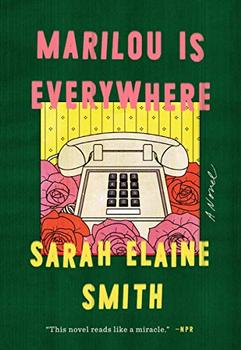Book Club Discussion Questions
In a book club? Subscribe to our Book Club Newsletter!
For supplemental discussion material see our Beyond the Book article, Greene County, Pennsylvania, and Coal and our BookBrowse Review of Marilou Is Everywhere.
Please be aware that this discussion guide will contain spoilers!
- At the beginning, Marilou is Everywhere seems to fit the familiar trope of "girl goes missing in a small town," and yet it ultimately develops into something more unusual. How does the author turn this premise on its head? Is Jude the only one to go "missing" from her regular life? Think about the other female characters: Cindy, Cindy's mother, Bernadette. What about the male characters?
- The novel is vividly set in rural Pennsylvania and highlights the poverty and neglect in this area. What, if anything, do you think the author means to say about life in small towns and rural communities throughout America? What does she suggest about the vulnerability of teenage girls and women in general here?
- At the beginning of the novel the protagonist Cindy Stoat states, "I would kill or die, die or kill, to be anyone else" (2). What is Cindy giving up, in her quest to become someone else? Was there ever a point in your life when you felt similarly?
- Jude Vanderjohn is biracial in a mostly white, rural town. She is described as "the only black person in school" (22). Do you think her race had anything to do with the town's preoccupation (or lack thereof) with her and her disappearance? Would it have been different if Jude had been a white girl? Do you think Jude's racial difference is part of what makes Cindy fascinated by her?
- Virgil and Jude once had a private joke in which they called each other Cletus and Marilou. Do you think Jude wanted to be someone else in the way that Cindy did? What do you think the novel is saying about identity? What does it mean then, that "MARILOU IS EVERYWHERE", as Virgil wrote on the wall of the choir room (65)? How does it work as the title for the book?
- Discuss Cindy's relationships with her brothers. How do these relationships change over the course of the novel? Does Shayna's appearance influence these relationships at all?
- In Bernadette's house Cindy is exposed to art and literature the likes of which she'd never seen before, and it changes her entire outlook on life. Why do you think that is? Does this exposure shape Cindy's development, or her decisions about her life in the end?
- Does Bernadette's condition change over the course of the novel? If so, how? How does her state of mind contribute to Cindy's actions? In a different way, consider how Cindy, too, changes over the course of the novel.
- Several different mothers are portrayed in the novel, with different capacities for nurturing. What does Cindy get from each of them, and what is lacking? Do you see Cindy taking on any qualities of mothering at any point in the novel?
- Discuss the pivotal phone call scene in Chapter 15. Why do you think it was so easy for Cindy to make the decision that she did? Does this make Cindy a bad person? If you were in her situation would you have done the same?
- How is danger depicted in Marilou Is Everywhere? What kinds of dangers exist for Cindy? Which does she choose and which are forced on her? Are any of these dangers worth it?
- Animals figure largely within the novel, particularly the goats. What do you think is their role, if any? Talk about the significance of the goat birthing scene. What does Cindy learn about herself at this moment, and how does it influence the choices she makes following this experience?
- The story is told from Cindy's perspective, but we're given a glimpse of Jude's perspective in her TV and news interviews in the final chapter. What do you learn from this shift in POV?
- What do you think about the ethics of Cindy's deceit of Bernadette, or the moral ambiguity of her role in Jude's continued absence? Do you think Cindy is initially aware that her actions have ramifications that extend beyond herself, to her own family, or to Jude and her family? Does this awareness evolve over the course of the book? Do you think Cindy would make the same choices, given a chance to do it all over again?
Unless otherwise stated, this discussion guide is reprinted with the permission of Riverhead Books.
Any page references refer to a USA edition of the book, usually the trade paperback version, and may vary in other editions.
